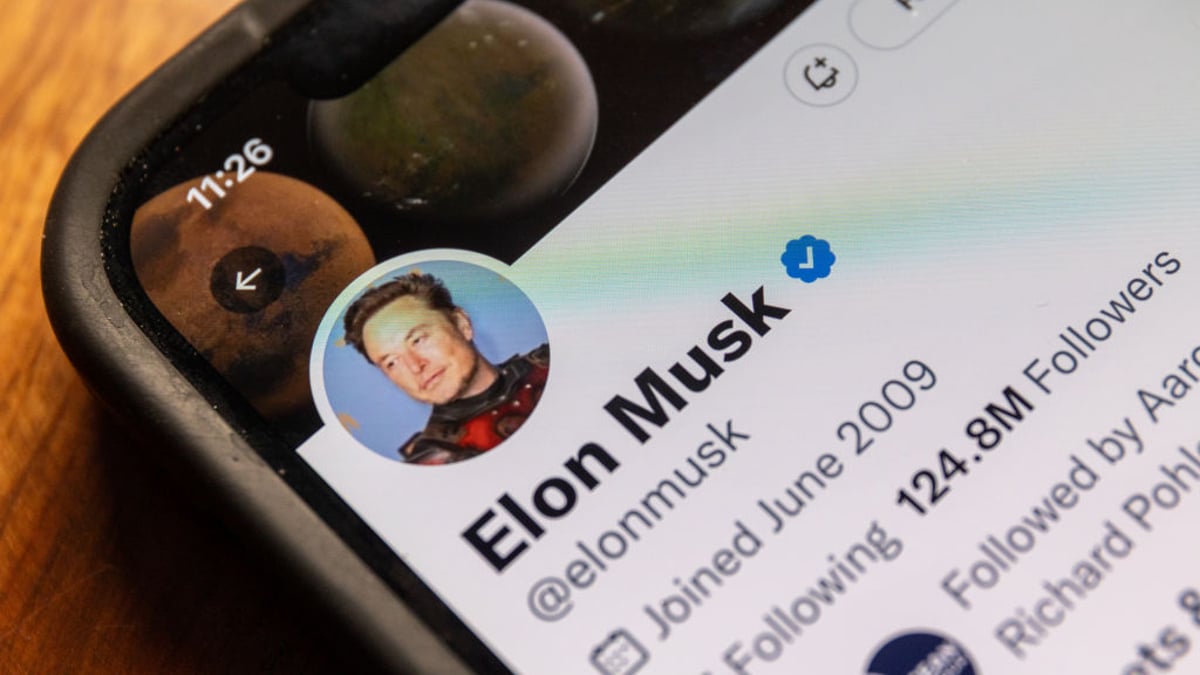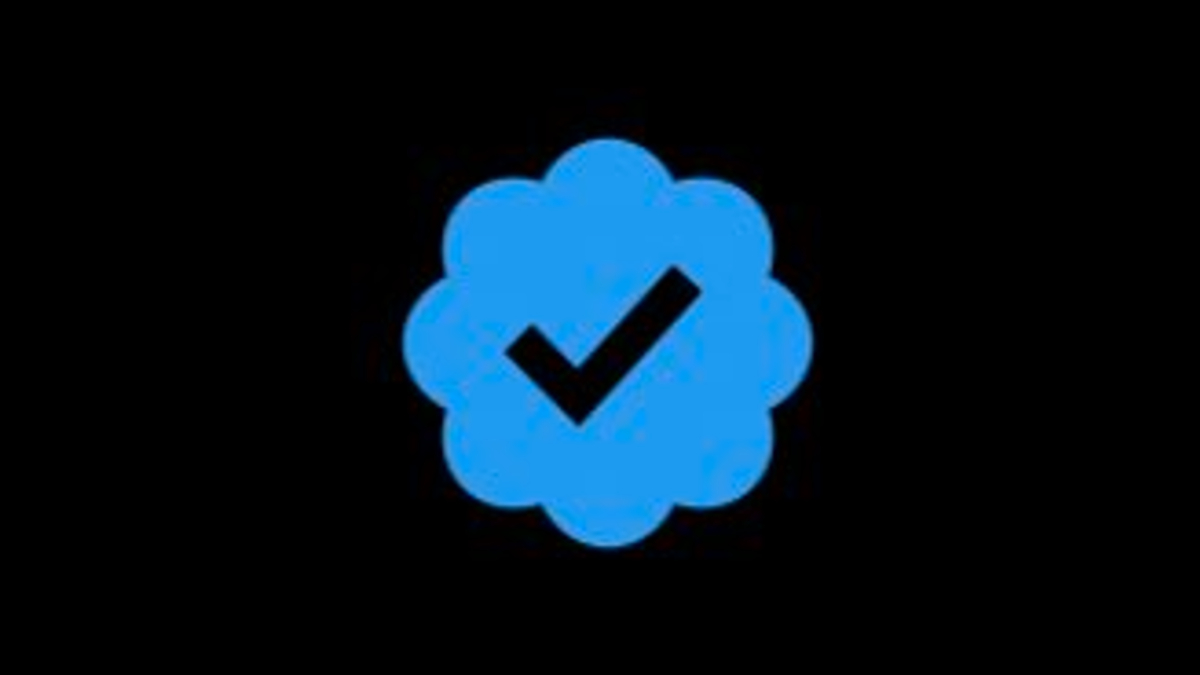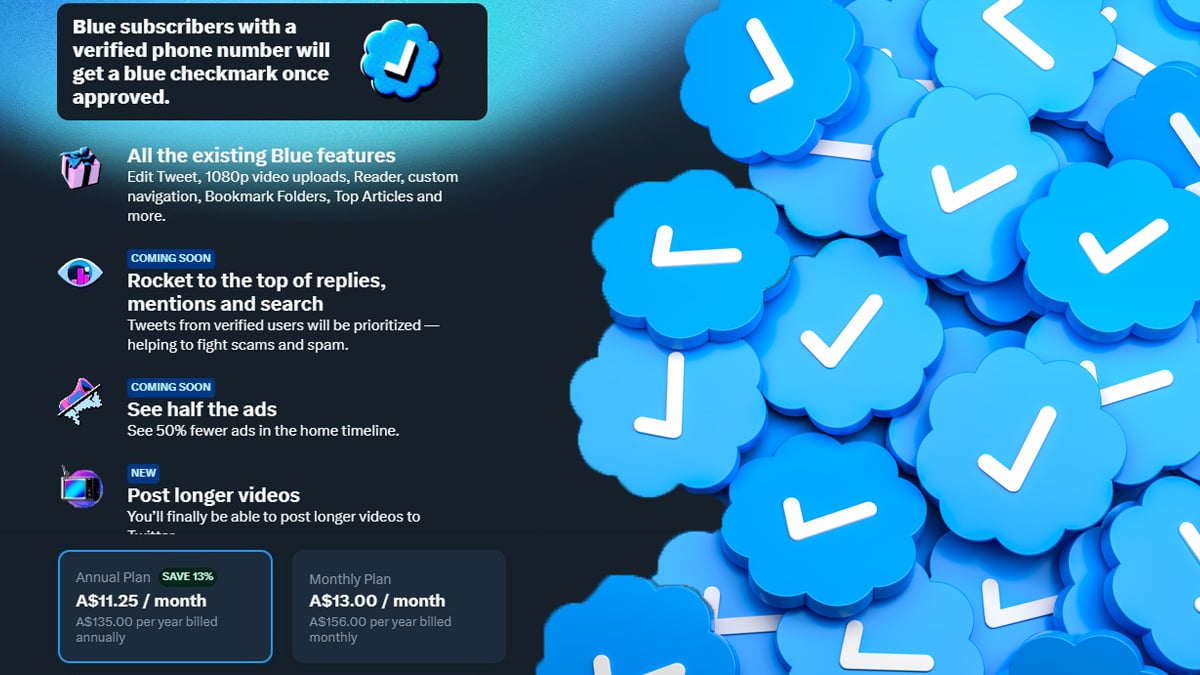Twitter has been and always will be a toxic cesspool, the little microblogging site that overcame limits 140 characters at a time to become an international forum that gave a voice to the voiceless, democratized the sharing of information, and influenced culture in unthinkable ways. Do you remember that dress of varying colors? What about when celebrities decided that the best way to cheer everyone up during a pandemic was to sing “Imagine” by John Lennon? Or how about that time a sitting senator liked porn, inadvertently bringing it onto his timeline? The point is, Twitter is as incredible as it is horrible, and although the newest iteration being run by Elon Musk will only continue to destroy the legacy of the Blue Bird, it was always the social media site in spite of itself.
One major problem the site faced over the past 17 years has been identity verification — how do you know the person tweeting is real? For celebrities and journalists alike, impersonators could, and often did, cause trouble. Most people caught in the hustle and bustle of reality did not notice an extra letter, number, or symbol in the username of whatever celebrity seemed to be going on an unprecedented rampage. To combat this, Twitter introduced Verification, a checkmark next to an account’s name which denoted they are indeed who they say they are. This system, while flawed and aimed toward influencers and a select few journalists of note, certainly curbed much false posting. That is, until Musk removed it.
In a wildly misguided effort to further “democratize” Twitter — by which I mean making verification meaningless and letting his horrid fanboys have free rein over the platform without repercussions — Musk introduced the Twitter Blue Checkmark. Now, anyone could pay $8 a month to have their tweets spread far and wide over Twitter, and with zero initial visual distinction between verified checks and paid ones, impersonators went wild. (Not all fakers were malicious: one brave soul disguised as insulin producer Eli Lilly tweeted “insulin is free,” resulting in a massive stock decrease that led to an actual $35 price cap for the drug for all seniors on Medicare.)

This might seem like a lot of backstory, a recap that no one needs because everyone already knows the recent history of Twitter, but people are quick to forget — especially if they are billionaire video game CEOs. Tim Sweeney, the CEO of Epic Games (best known for creating Unreal Engine and Fortnite), took to Twitter to complain about the recent #BlockTheBlue campaign, where users across the website unite to block every single person who pays for Twitter Blue. The protest comes days after Musk removed all legacy verifications: profiles verified by the old guard of Twitter, meaning they have not paid Musk a cent. Of course, by removing verification, Musk has allowed more and more people to impersonate government agencies, important journalists, celebrities, companies, and more because literally almost no one wants to pay for something they were previously given for free. More often than not, celebrities both alive and dead are gifted with a Twitter Blue sub, apparently paid for by Musk himself, that they simply do not want.
With much of the Twitter Blue userbase being Musk’s cronies who treat content moderation and political correctness as disposable suggestions, people have simply found it easier to block them and move on. It’s curating the garbage, one might say. To Sweeney, however, it’s bullying akin to being shoved into a locker or given a swirly in high school. His metaphors get a bit mixed, actually, calling those #BlockingTheBlue “losers and goons” before immediately calling them the “cool kids from junior high who worked to exclude we nerds from cool kid events” before abruptly adding “plus the losers who joined in to gain cred.” Sweeney argues that the old verification system existed solely for elites; Twitter should be a meritocracy where the best rise to the top and are rewarded for it, identity verification be damned. He then claims that Twitter employees began handing out verifications for social clout, passing out IOUs and favors to friends and family (so not the elite, but the privileged). But also, normal users could never compete with the elite power users: celebrities, journalists, and government agencies. Y’know, the people the system was designed to protect.
Sweeney continues to spew falsehoods, so much so that Twitter began adding community context to his tweets. He claims documents proving your identity were superfluous toward being verified by the legacy system, which contradicts the entire point of verification in the first place. He claims that taking away verification was an “unwritten practice” done to “condition user speech,” when in reality, people like Louis Farrakhan (the leader of the Nation of Islam) violated the website’s code of conduct.

Of course, this is all stupid — a billionaire CEO out of touch with reality commenting on something he has no stake in and claiming it is for the everyman. But we can’t end the conversation here because although we’ve heard the words, we haven’t discussed the “why” — Sweeney’s reasoning behind his rambling. Simply put, Sweeney misses the point of why verification matters — why people are participating in #BlockTheBlue — because his feelings are hurt. He’s a self-proclaimed nerd, a dork, an outcast in society who — despite literally having more money than God — craves community. He might have won, as Gears of War creator Cliff Bleszinski claims, but that doesn’t matter: Sweeney will always be the outcast fighting the same battle a lá Highlander.
In the most generous light, he wants other outcasts to feel affirmed and encouraged, he wants them to believe they do not have to exist on the outskirts of society alienated, alone, and vengeful. In the worst — and most realistic — light, it’s all about in-groups and out-groups, and anyone blocking the path toward popularity and community (no matter their intentions) is wrong. Sweeney is willfully ignoring a hateful system designed to propagate right-wing ideas and grifts to enact some sort of juvenile, junior-high revenge against everyone who ever dared belittle him. There’s not enough money in the world to heal a bruised ego, but, golly, can Sweeney try.

